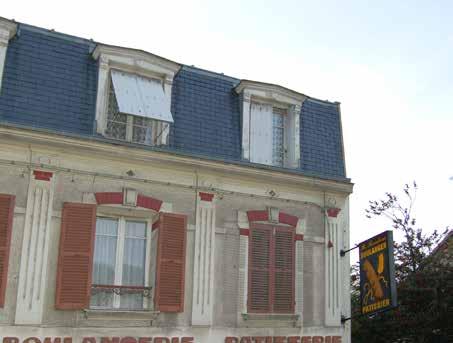
3 minute read
French
The aims of the GCSE French course are:
• To engage all pupils so that they become confident and motivated language learners • To enable all pupils to achieve their potential • To make languages accessible to a wide range of abilities
• To help all pupils benefit from learning a language and learning about the world around them • To ensure that pupils are confident in their language skills and are aware of what they can achieve • To encourage motivation through interesting, popular content relevant to pupils • To encourage progression through a gradual increase in the level of demand
• To develop awareness and understanding of the culture and identities of the countries and communities where the language is spoken
What will I study?
The course content is divided into four main topic areas for the external examinations.
Identity and culture
• Who I am: relationships, when I was younger, what my friends and family are like, what makes a good friend, interests, socialising with friends and family, role models
• Daily life: customs and everyday life, food and drink, shopping, social media and technology (use of, advantages, disadvantages) • Cultural life: celebrations and festivals, reading, music, sport, film and television
Local area, holiday and travel
• Holidays: preferences, experiences and destinations
Edexcel 1FR0
• Travel and Tourist transactions: travel, accommodation, asking for help and dealing with problems, directions, eating out, shopping • Town, region and country: weather, places to see, things to do
School
• What school is like: school types, school day, subjects, rules and pressures, celebrating success • School activities: school trips, events and exchanges
Future aspirations, study and work
• Using languages beyond the classroom: forming relationships, travel, employment • Ambitions: further study, volunteering, training • Work: jobs, careers and professions
International and global dimension
• Bringing the world together: sports events, music events, campaigns and good causes • Environmental issues: being “green”, access to natural resources
Emphasis in the teaching is placed on authenticity; on using the four language skills (listening, speaking, reading and writing) in real life practical situations. The final examination assesses pupils’ performance in the four language skill areas and at two different levels, Foundation and Higher Tiers. Grammar and exposure to cultural and literary context are an essential part of the course.

Key Stage 4 Guide
How will I be assessed?
The exam consists of four distinct parts, externally assessed at the end of the course:
Listening
Speaking
Reading
Writing A range of formats including multiple choice, open response and some questions in French; authentic and interesting contexts.
Contexts set in realistic scenarios to show how language is used in authentic situations; element of choice for all pupils.
A range of question formats such as multiple choice, open responses and some questions in French requiring short or one word responses. A short translation also features; texts are all age-relevant and set in the culture of the target language country.
A choice of questions which encourage spontaneity and creativity; a translation component also features. All questions are adapted to the level of the pupils, namely Foundation or Higher. (25%)
(25%)
(25%)
(25%)
Special Objectives
For pupils with an advanced level of French we offer a Special Objectives programme. For this programme the study material is carefully selected and provides extra intellectual stimulation. Pupils in Special Objectives classes are taught a specific course in grammar and literature and sit their French GCSE examination at the end of Year 10, one year earlier than the norm. This group will begin A Level French in Year 11.













